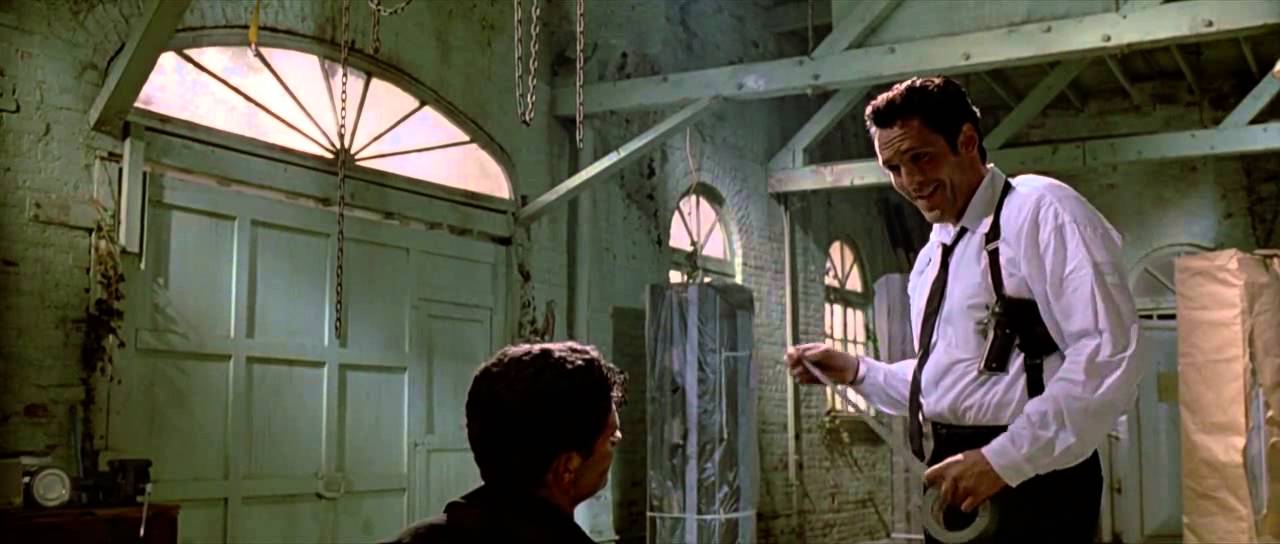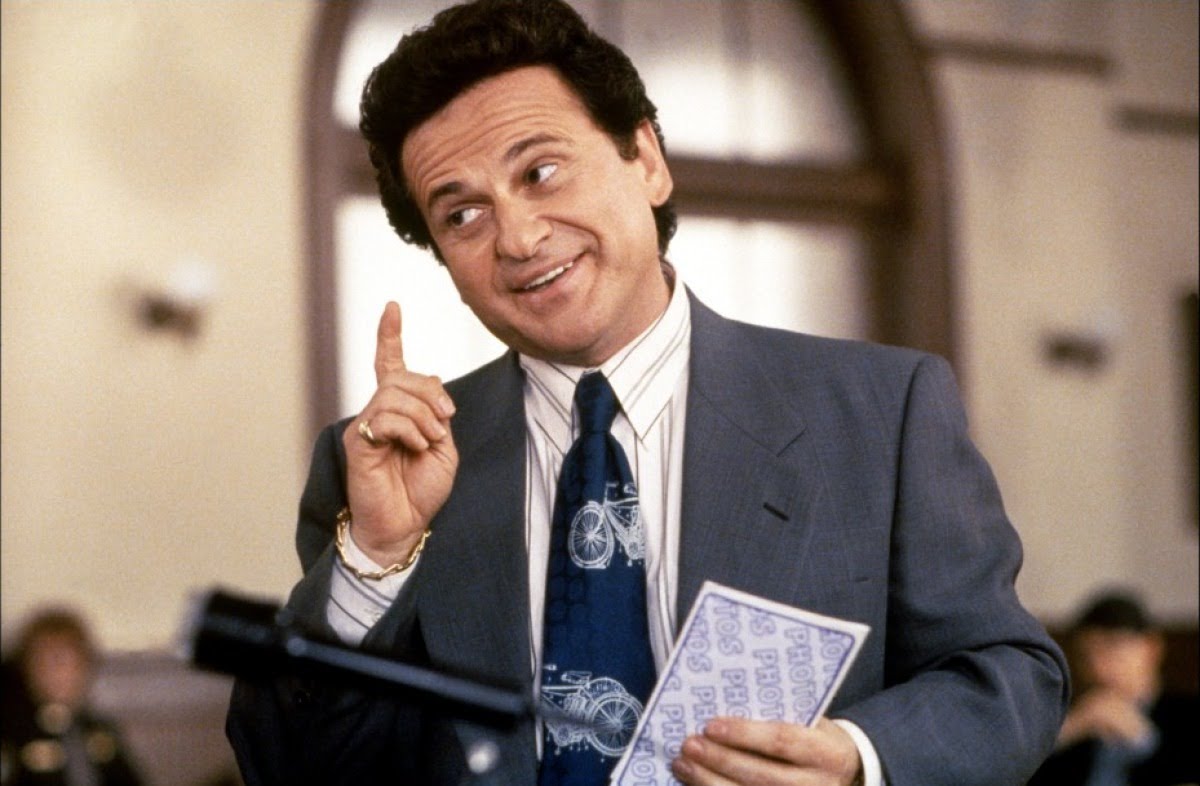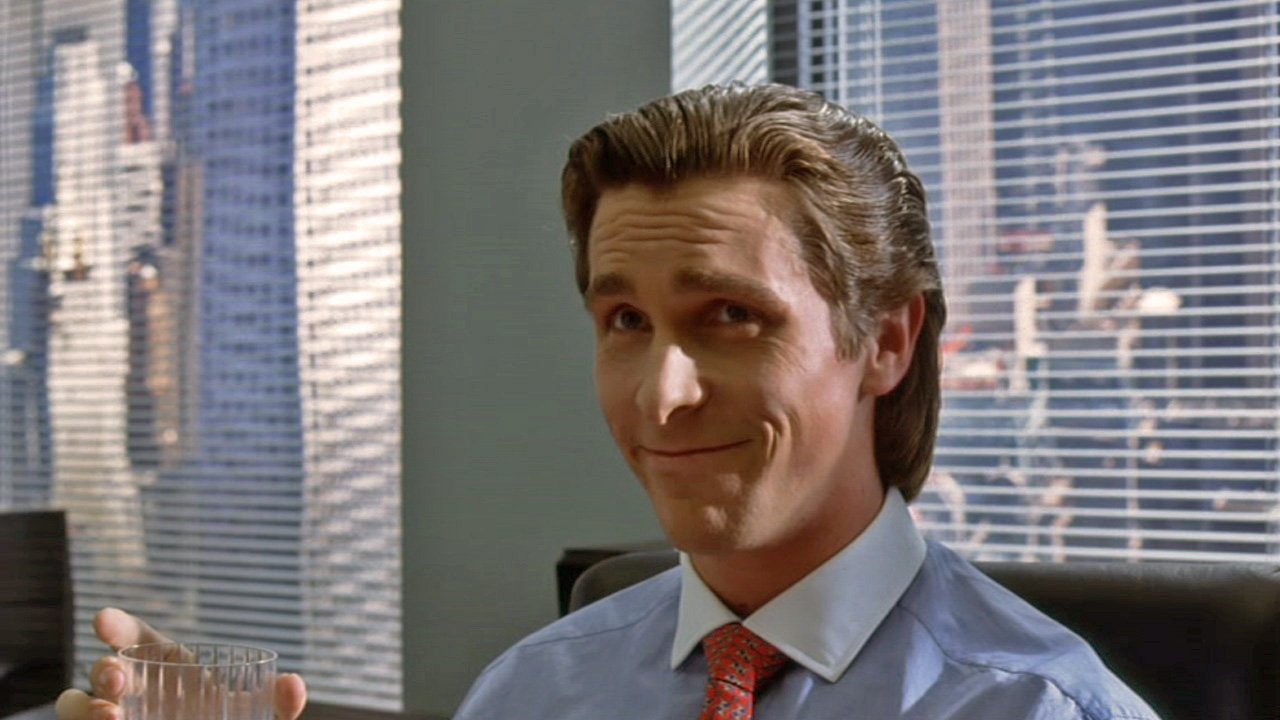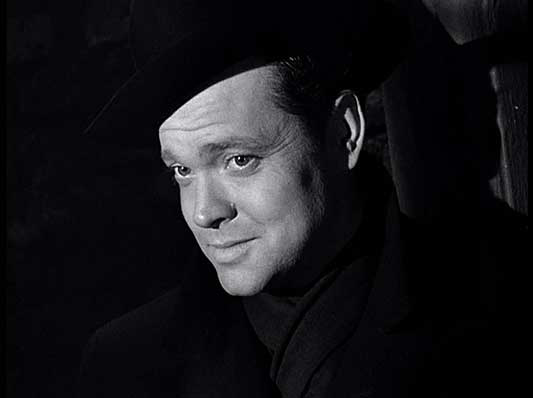4. Mr. Blonde (Reservoir Dogs, 1992)
Mr. Blonde (Michael Madsen) whose real character name is Victor ‘Vic’ Vega, is none other than brother to Vincent Vega (John Travolta) who features in ‘Pulp Fiction’, another gem from Quentin Tarantino. Nothing can go right for the dogs in ‘Reservoir Dogs’ as the diamond heist is bungled, there’s a police informant in the ranks and everyone is fast losing their patience and eventually their heads.
Only Mr. Blonde is relishing the journey, expiring a few civilians along the way and taking a police officer, Marvin Nash, as a hostage for his later sadistic pleasure. Mr. Blonde ties up Marvin to a chair as K-Billy’s Super Sounds of the 70’s radio bounces along with ‘Stuck in the Middle with You’ by Stealers Wheels. It is in this scene that Mr. Blonde earns his cinema cachet and online kudos, becoming the face that launched a thousand gifs.
Marvin pleads for his life to the delight of Mr. Blonde who responds with, “I don’t give a fuck what you know, or don’t know, but I’m gonna torture you anyway, regardless”. To Marvin’s increasing hysteria, Mr. Blonde leisurely dances closer, and with the faintest grin carves off the police informant’s right ear. “Was that as good for you as it was for me?” mumbles Mr. Blonde with delectation.
The true sense of this sadistic gratification though is revealed when Mr Blonde exits the garage. He loses his fancy footwork, steps out cautiously, looking about for prying eyes and is altogether just another average Joe.
The moment he enters the garage and the radio belts out that “the feeling that something ain’t right,” he once more becomes Mr. Blonde, picks up where he left off and shuffle dances – all because he has a captive audience in Marvin, who watches him in horror. This is the wicked enjoyment from a psychopath who loves the attention as he feeds on the last vestiges of life.
5. Thomas “Tommy” DeVito (Goodfellas, 1990)
Never tell ‘Wiseguy’ Tommy DeVito (Joe Pesci) to go home and get his shine box. Also, make sure you don’t come from a family of rats. When he commands you to dance, you’d better dance and good. Without a question though, never ever remark, even casually, that you think Tommy is funny.
In the now infamous scene heavy with cascading dread, Tommy pushes Henry Hill (Ray Liotta) to the darkest depths of self-doubt and fear – all for a laugh. “I mean funny like I’m a clown, I amuse you? I make you laugh?” spits Tommy at Henry. At the last minute Henry backs off and finds the humor, not without receiving a scare he’ll not soon forget.
A phrase turned incorrectly by degrees will unleash the sadistic beast in Tommy, ready to extract any callous humor out of the situation within an inch of your life. Stopping by ‘Ma’ (Catherine Scorsese, Martin Scorsese’s real-life mother), his mother’s house to borrow a shovel to bury Billy Batt (Frank Vincent), the mobsters are compelled to eat a home cooked meal. ‘Ma’ has missed her boy Tommy. He proceeds to concoct a hilarious story about hitting a deer on the road and needing to borrow his mother’s large kitchen knife to remove a hoof caught in the car grill.
Tommy casually segues on to discussing his philandering ways and chortling on the idea that his mother’s painting of an old man reminds him of mobster Billy Batt who lies dying in his car boot. It’s Tommy’s way of living a murderous and sadistic life – with schadenfreude soaked laughter. Arguably, Pesci has created the greatest scene stealing character in the history of cinema. If a scene in ‘Goodfellas’ wasn’t about Tommy, it soon became all about Tommy.
After the character is left behind in the narrative, the film is utterly imbued by his presence and all others cannot help but be judged by Pesci’s reckless and enigmatic turn.
Deservedly winning the 1991 Oscars Supporting Actor Award for his portrayal of this sadistic ‘Wiseguy’, Pesci improvised much of the dialogue after being given free reign by director Scorsese. Missing out on major Oscar awards, “Goodfellas’ was however selected in 2000 for preservation in the National Film Registry by the U.S. Library of Congress.
6. Patrick Bateman (American Psycho, 2000)
When you live in a glamorous world where it’s hard to find a good toilet to do coke in, then you have to find yourself some alternative highs and in a 1980’s Manhattan, Patrick Bateman (Christian Bale) has found his calling. Long in production hell, ‘American Psycho’ finally hit the screens with Bale ready to throw everything into the role, shock his past audience, re-design his body and climb the ladder to superstardom.
A rich investment banker, Bateman completely embraces his super-charged yuppie culture of gross narcissism and flagrant materialism. If his face is a little puffy, then his mornings include facial ice packs with stomach crunches, followed by showers with a honey-almond body scrub. He also likes to dissect girls. Bateman views his world with an ironic eye, ever teasing out the humorous contrasts and all the while reflecting upon on his own depravity.
Ruminating on a Peter Gabriel led ‘Genesis’ pop band that was “too artsy, too intellectual,” he proceeds to indulge his wicked and ironic humor with two uncomfortable but strangely pliant women. Discussing the merits of the pop song ‘In too deep’, that Bateman finds the most moving of the 1980’s, touching on monogamy and commitment, he asks Christie (Cara Seymour) to get down on her knees so Sabrina (Krista Sutton) may see her asshole.
Bateman’s pleasure is their humiliation and his narcissistic joy in reveling in his own power. In this he feigns to hide his psychopathy under his inane pop-culture insights. An unforgettable and hilarious scene sees Bateman analyzing the musical arc of the band ‘Huey Lewis and the News’. He feels that the band should be heard closely and that the song ‘Hip to be square’ is “not just about the pleasures of conformity, and the importance of trends,” a culture to which Bateman certainly is a slave to himself.
Rejecting a comparison with Elvis Costello, he goes on to say that, “I think Huey has a far more bitter, cynical sense of humor”. Here he projects his on true personality, awakening his id and readying himself for a kill. When discussing serial killer Ed Gein with David Van Patten (Bill Sage), Bateman reveals the two sides of his mind constantly at war.
Gein thinks about two things when seeing a pretty girl walk down the street, “one part wants me to take her out, be real nice,” says Bateman, and the other sides thinks about, “what her head would look like on a stick”. To this he lets out a revealing and chilling laugh. Bateman is able to keep the two polar opposites of his psyche together, the vapid intellectual consumerist with that of a monstrous killer – only with his wicked sense of humor.
7. Harry Lime (The Third Man, 1949)
Ranked as ‘The best British film ever made’ in 1999 by a British Film Institute poll, ‘The Third Man’ is universally hailed as a masterpiece. The film is a truly sumptuous and atmospheric experience made sweeter with the zither music of Anton Karas. With an original screenplay by Graham Greene and directed by Carol Reed, no cinema lover should miss out on a taste of this film as it has been recently restored to a beautiful 4k digital version.
In dramatic contrast, this delightful film sets the action in a crumbling post-World War 2 Vienna around a wicked and deadly trade of stolen penicillin. Presumed dead, Harry Lime (Orson Welles) is talked about, mentioned in passing, searched for but remains elusive throughout most of the film, only then to make one of the greatest screen entrances in cinematic history.
At his charming best, Welles plays an evil anti-hero who fakes his own death as the law edges closer to entrap him. When questioned if he has any remorse for his victims, Harry Lime responds in a chilling manner, never losing the twinkle in his eye and an engaging grin. He looks down on people below referring to them as dots that could easily disappear for a few thousand pounds each.
Harry is a misanthrope full of odious self-justifications yet he is always elegant, engaging and magnetizing, just like the film itself. Lime’s aphorism about what the years during the reign of terror under the Renaissance Borgias’ produced as opposed to a time of peace and democracy is wickedly humorous and utterly disquieting.



